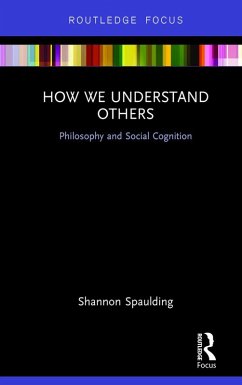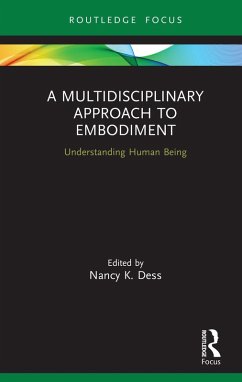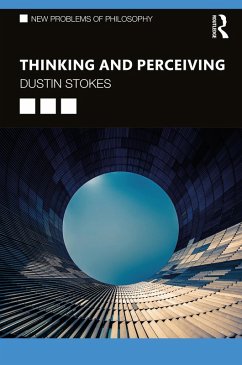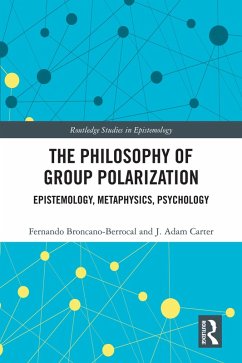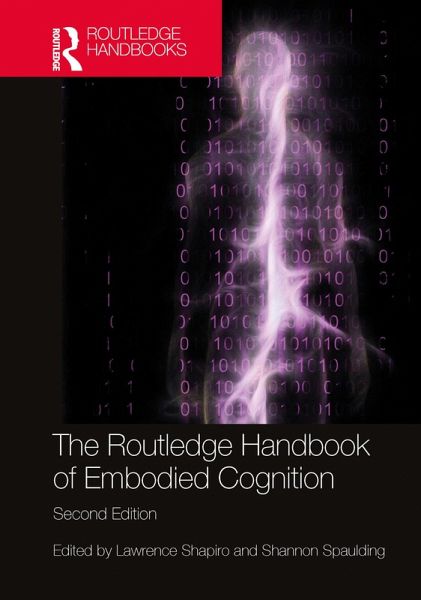
The Routledge Handbook of Embodied Cognition (eBook, PDF)
Versandkostenfrei!
Sofort per Download lieferbar
47,95 €
inkl. MwSt.
Weitere Ausgaben:

PAYBACK Punkte
24 °P sammeln!
Embodied cognition is one of the foremost areas of study and research in philosophy of mind, philosophy of psychology, and cognitive science. The Routledge Handbook of Embodied Cognition is an outstanding guide and reference source to the key topics and debates in this exciting subject and essential reading for any student and scholar of philosophy of mind and cognitive science.Extensively revised and enlarged for this second edition, the Handbook comprises 42 chapters by an international team of expert contributors and is divided into ten parts: Historical Underpinnings Perspectives on Embodi...
Embodied cognition is one of the foremost areas of study and research in philosophy of mind, philosophy of psychology, and cognitive science. The Routledge Handbook of Embodied Cognition is an outstanding guide and reference source to the key topics and debates in this exciting subject and essential reading for any student and scholar of philosophy of mind and cognitive science.
Extensively revised and enlarged for this second edition, the Handbook comprises 42 chapters by an international team of expert contributors and is divided into ten parts:
The early chapters of the Handbook cover empirical and philosophical foundations of embodied cognition, focusing on Gibsonian and phenomenological approaches. Subsequent chapters cover additional, important themes common to work in embodied cognition, including embedded, extended, and enactive cognition as well as chapters on empirical research in perception, language, reasoning, social and moral cognition, emotion, consciousness, memory, and learning and development.
For the second edition many existing chapters have been revised and seven new chapters added on: AI and robotics, predictive processing, second-language learning, animal cognition, sport psychology, sense of self, and critiques of embodied cognition, bringing the Handbook fully up to date with current research and debate.
Extensively revised and enlarged for this second edition, the Handbook comprises 42 chapters by an international team of expert contributors and is divided into ten parts:
- Historical Underpinnings
- Perspectives on Embodied Cognition
- Embodied Cognition and Predictive Processing
- Perception
- Language
- Reasoning and Education
- Virtual Reality
- Social and Moral Cognition and Emotion
- Action and Memory
- Reflections on Embodied Cognition
The early chapters of the Handbook cover empirical and philosophical foundations of embodied cognition, focusing on Gibsonian and phenomenological approaches. Subsequent chapters cover additional, important themes common to work in embodied cognition, including embedded, extended, and enactive cognition as well as chapters on empirical research in perception, language, reasoning, social and moral cognition, emotion, consciousness, memory, and learning and development.
For the second edition many existing chapters have been revised and seven new chapters added on: AI and robotics, predictive processing, second-language learning, animal cognition, sport psychology, sense of self, and critiques of embodied cognition, bringing the Handbook fully up to date with current research and debate.
Dieser Download kann aus rechtlichen Gründen nur mit Rechnungsadresse in A, B, BG, CY, CZ, D, DK, EW, E, FIN, F, GR, HR, H, IRL, I, LT, L, LR, M, NL, PL, P, R, S, SLO, SK ausgeliefert werden.






